Introduction
Imagine this: you’re a business owner, eager to expand your offerings without sinking years or dollars into development. White label software reselling offers just that—a shortcut to new revenue and market reach.
The white label software reseller market is booming, with industry growth projected to reach over $225 billion by 2027 (Source: Market Research Future).
This means more businesses than ever are leveraging white label solutions to quickly scale their product lines, meet evolving customer needs, and increase profitability.
By becoming a white label software reseller, you’re not just adding a product to your lineup—you’re building a foundation for growth. You can skip the lengthy R&D, avoid high development costs, and focus on what really matters: customer satisfaction and brand loyalty.
Whether it’s CRM tools, marketing automation, or e-commerce platforms, white label software provides a fast track to market dominance.
So, why wait? Dive into the world of white label reselling, and position your brand at the forefront of innovation without the headache of starting from scratch.
Understanding White Label Software
When businesses seek efficient ways to expand their offerings without hefty development costs, white label software often emerges as the ideal solution.

This model allows companies to rebrand and sell software created by another provider as their own, eliminating the need for internal development and maintenance.
Essentially, a business can acquire ready-made software from a third-party provider, customize it to align with its brand, and market it as if it were built in-house.
But what makes white label software so appealing to resellers? Let’s explore its core characteristics and the types available to understand its functionality better.
Key Characteristics of White Label Software
White label software offers a unique value proposition that makes it an attractive option for businesses aiming to diversify their product lineup quickly and affordably.
Here are some defining characteristics:
Rebranded and Customized
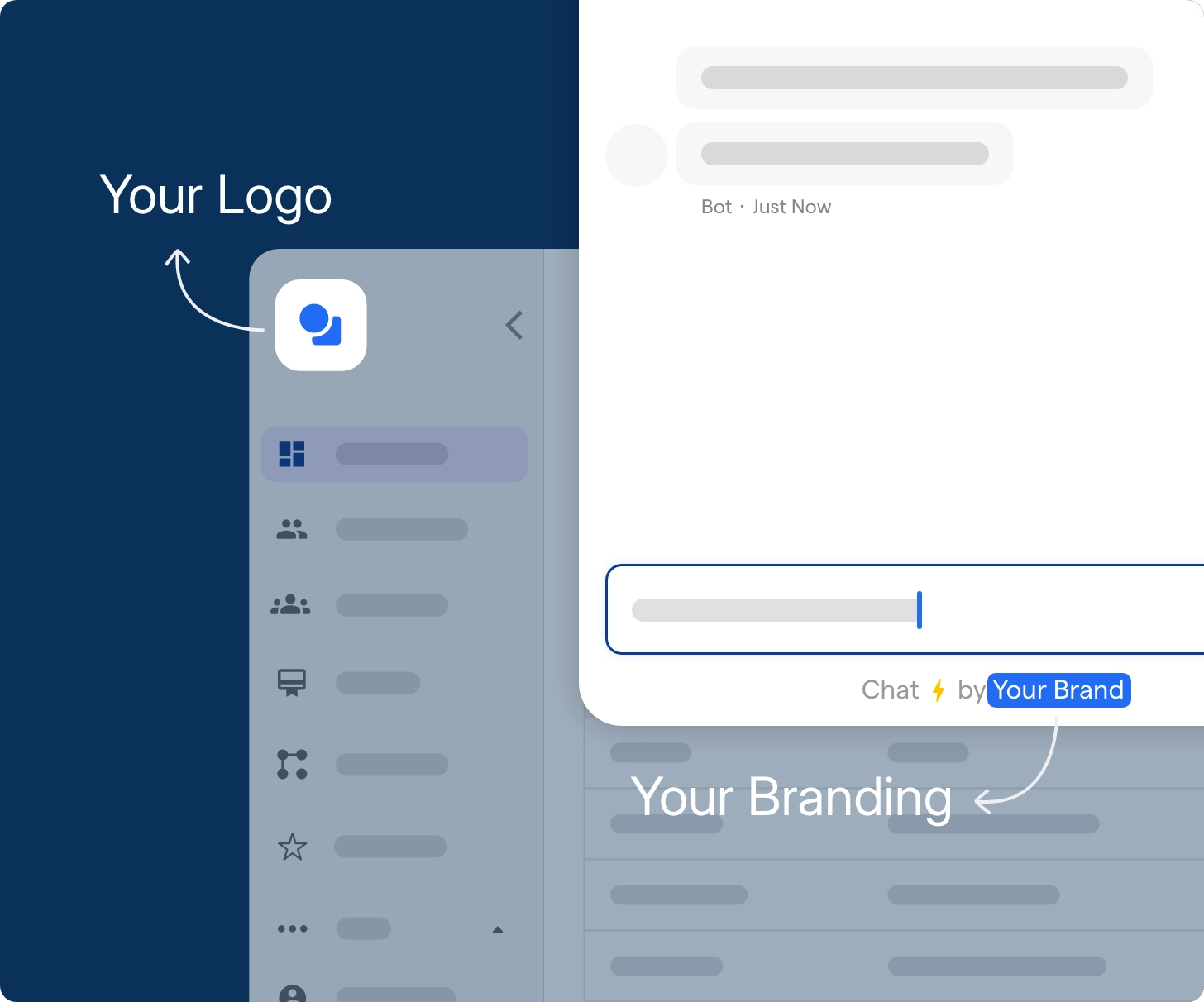
The primary appeal of white label software is its flexibility for rebranding. Resellers can modify logos, colors, and the overall user interface to match their brand identity, giving customers the impression of a custom-developed product.
For example, a marketing agency could offer a white label CRM software solution, complete with its branding, to clients as part of an integrated service package, without revealing the original software provider.
No Development or Maintenance Required
One of the most significant advantages of white label software resellers is that businesses don’t need to dedicate resources to software development or maintenance.
The original provider manages all aspects of software updates, security patches, and technical improvements.
As a white label software reseller, this frees up your time and resources to concentrate on customer acquisition and support, enhancing your business’s reach and revenue potential.
Cost-Effective Solution
With white label software, businesses avoid the high costs associated with creating software from scratch.
Rather than investing in R&D or ongoing technical upkeep, companies can pay a licensing fee or join a white label software reseller partner program to access the software.
This approach lowers the barriers to entry, making it a viable option for small and large businesses alike.
For instance, a startup can quickly launch a competitive software product by leveraging white label software to resell, gaining traction in the market without significant upfront costs.
Types of White Label Software
White label software comes in different formats to suit varying business needs and technical requirements. Here are the three primary types commonly available:
SaaS (Software as a Service)
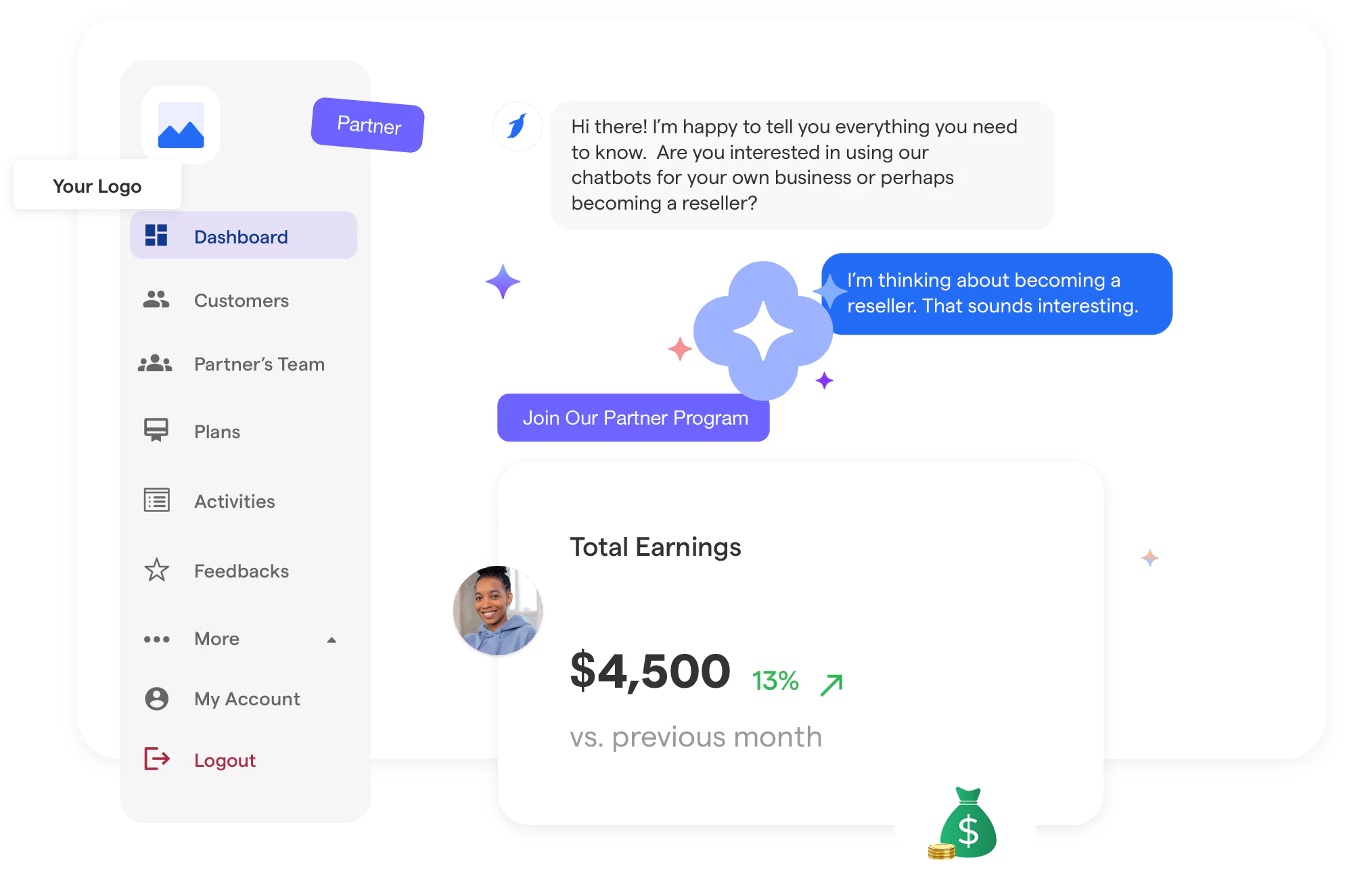
The most prevalent type of white label software is SaaS, or Software as a Service. This cloud-based solution allows users to access the software via the Internet without requiring installation.
SaaS white label solutions are highly flexible and work well for subscription-based models, such as email marketing tools, customer relationship management (CRM) systems, or project management platforms.
For example, a digital marketing company could resell a white label SaaS platform to manage clients’ social media, offering it as part of its broader service package.
On-Premise
Some businesses require greater control over their data and infrastructure, especially in sectors with strict compliance regulations. For these companies, on-premise white label software can be installed directly on internal servers.
Industries like healthcare, finance, or government services often opt for on-premise solutions to maintain control over data privacy and meet stringent regulatory standards.
For instance, a healthcare IT firm might resell a white label electronic health records (EHR) system, customized for hospitals while ensuring data compliance.
Hybrid
The hybrid model provides the best of both worlds by blending SaaS and on-premise capabilities. Companies can decide which parts of the software to host in the cloud and which to maintain on their own servers, offering both scalability and control.
This model is beneficial for businesses that need a flexible approach to data management, balancing security with ease of access.
An example could be a financial services provider that resells a hybrid white label software for portfolio management, allowing sensitive data to remain on-premise while other functionalities are cloud-based.
Through these different models, white label software to resell empowers businesses to expand their product portfolios, offering tailored solutions under their own brand without the challenges and costs of in-house development.
Benefits of Reselling White Label Software

Becoming a white label software reseller brings several advantages that can drive business growth without requiring you to build products from scratch.
By selling already-developed software, companies can concentrate on core operations while still expanding their service offerings.
Here’s a closer look at the main benefits of being a white label software reseller and how it can enhance your business.
Increased Revenue
Reselling white label software creates new revenue streams. Since the software is already developed, resellers avoid the significant initial costs of building a product.
Instead, you’re selling a market-ready solution under your brand, enabling quicker profit generation. Many white label software partner program offer competitive pricing structures, allowing you to set a profitable markup on the software.
For example, a marketing agency can offer a white label CRM tool, adding substantial income without the expense of developing it in-house.
Expanded Market Reach
Offering white label software enables businesses to tap into new markets. Whether providing SaaS tools or specialized industry solutions, reselling these products allows your brand to reach audiences that might have been inaccessible before.
By positioning your business as a comprehensive software provider, you can address diverse customer needs and significantly expand your client base.
For instance, an IT consulting firm might attract small to medium businesses by reselling a white label project management software, broadening its market reach beyond consulting alone.
Enhanced Brand Reputation
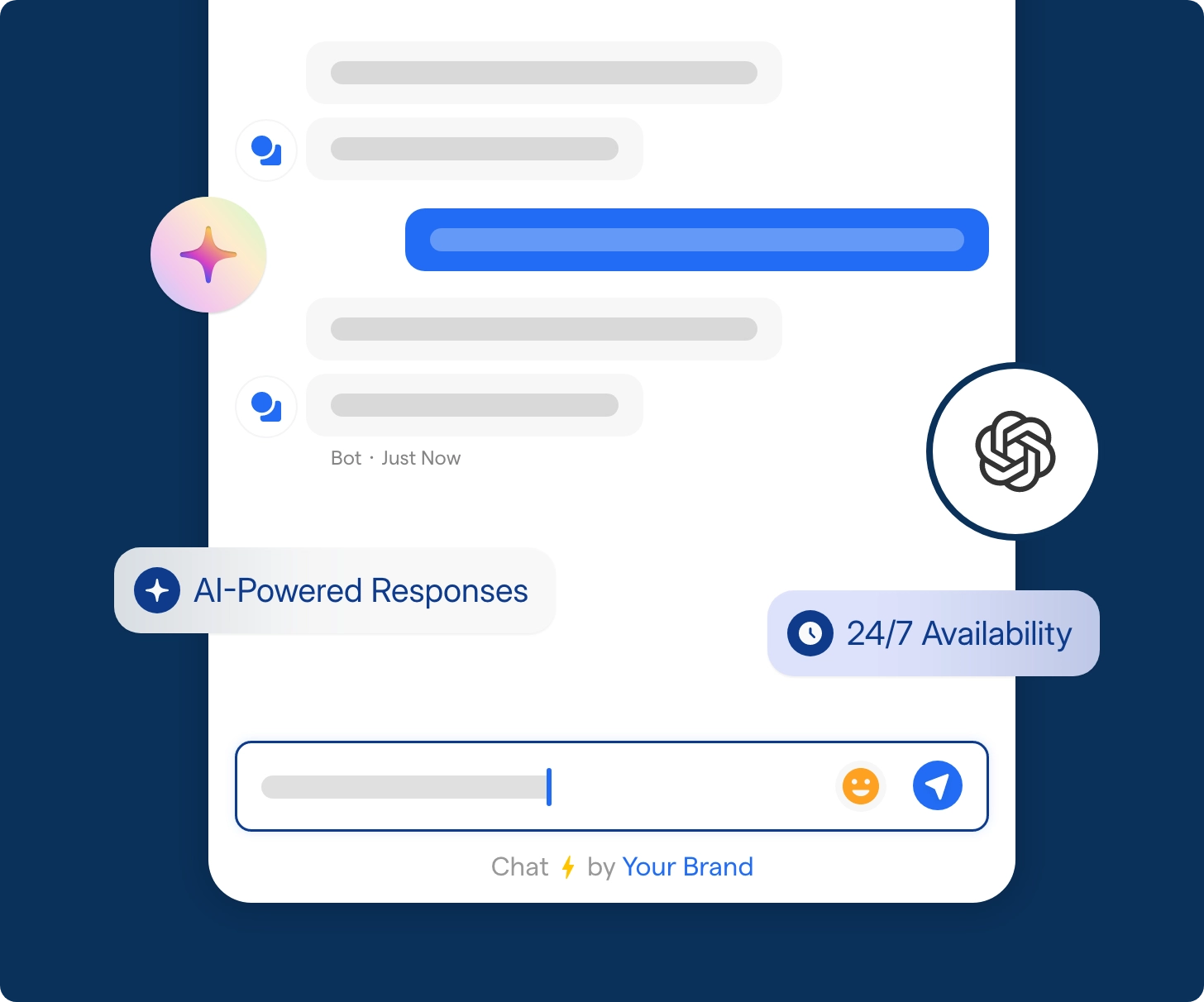
Offering high-quality white label software can elevate your brand’s reputation, positioning it as a provider of reliable, advanced solutions. This benefit is especially valuable for smaller or emerging companies seeking to build credibility.
By joining a reputable white label software partner program, your business can deliver industry-leading products without needing in-house development.
This boosts your market credibility, as customers perceive your brand as capable of delivering professional-grade software solutions.
Reduced Operational Costs
One of the key draws of white label software reselling is the ability to reduce operational costs. Without the need for a dedicated development team or ongoing software maintenance, your business saves on staffing, resources, and infrastructure.
Many white label software providers include technical support and regular updates, eliminating the need for in-house troubleshooting.
This is particularly beneficial for smaller companies, as they can avoid hiring full-scale development teams while still providing robust software.
Time-Saving
Reselling white label software is also a time-efficient way to offer new products. Since the software is pre-built, you can bypass the lengthy development cycle and move straight to sales and marketing.
With the software provider handling updates and bug fixes, your team can focus on customer service and business growth rather than technical upkeep. This allows companies to introduce white label software to resell without delay, generating revenue faster.
How to Choose the Right White Label Software
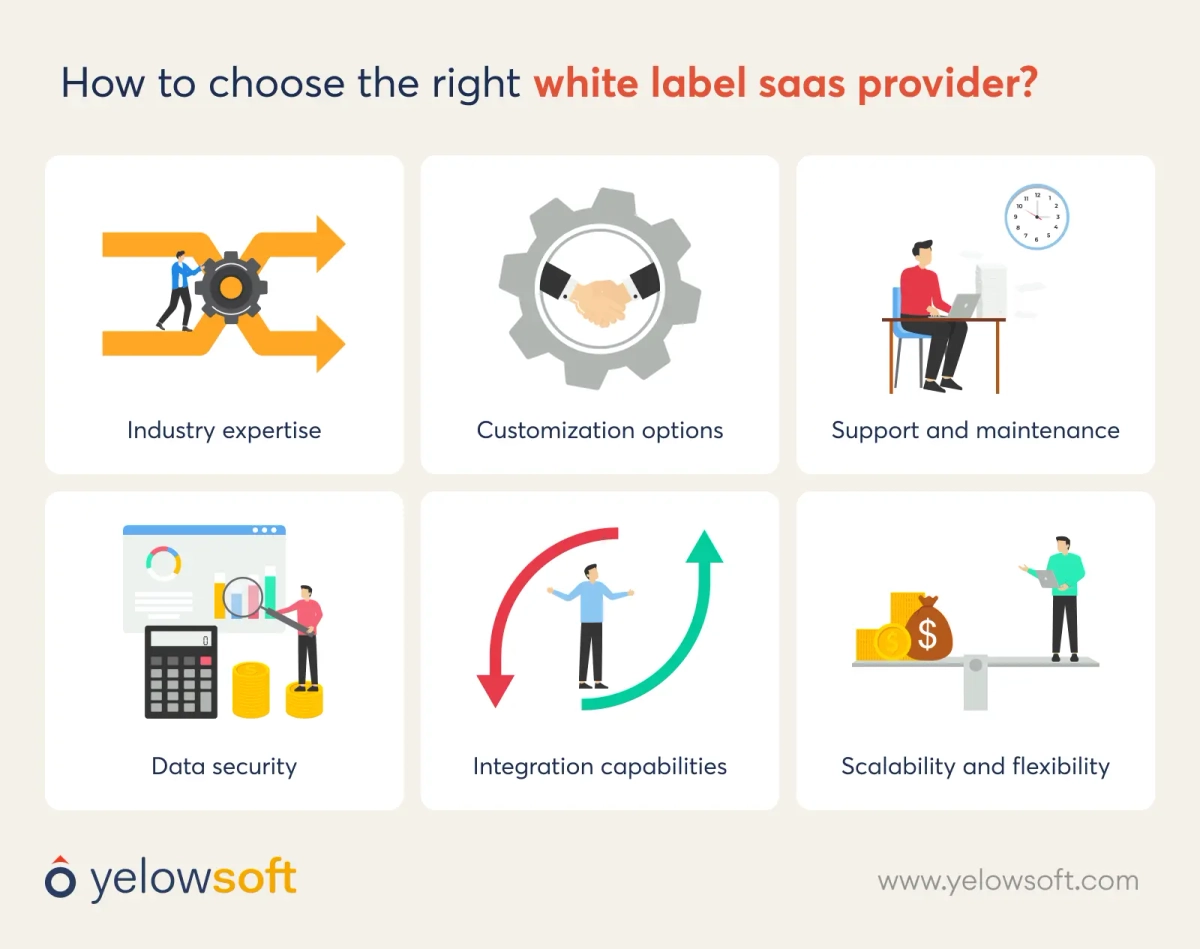
Selecting the right white label software is critical to the success of your reselling venture.
With many options available, a strategic approach to choosing software that aligns with your business needs and market goals is essential.
Here’s a guide to help you choose the best white label software for reselling success.
Identify Your Target Market
Begin by understanding your target audience. Are you catering to small businesses, startups, or larger enterprises?
Do your customers need user-friendly solutions, or do they require specialized, industry-specific tools? Knowing your audience helps ensure that the white label software you choose aligns with their needs.
For example, SaaS solutions are generally more popular among small businesses due to their low setup requirements, while certain industries may demand more advanced, customizable options.
Define Your Business Goals
Clarifying your business objectives is key to choosing the right white label software. Determine whether your primary goal is to open new revenue channels, improve customer loyalty, or enter a new market segment.
Your goals will help filter out software options that don’t meet your business criteria. For instance, if your goal is to penetrate new markets rapidly, you may prefer a solution that is scalable and integrates easily with other platforms.
Suggested Reading:
Top 9 White Label Software for Reselling in 2024
Evaluate Software Features and Functionality
Not all white label software offers the same features or levels of functionality. Evaluate potential products by considering whether they address your customers’ specific needs.
Does the software solve their challenges, streamline processes, or add value? Customizability is also important; you’ll want a solution that can be tailored to reflect your brand identity.
If you’re entering a white label software partner program, ensure that the platform has strong support, regular updates, and essential features that align with your market’s expectations.
Consider Pricing and Licensing Terms
Pricing is a crucial factor when selecting white label software. Ensure that you understand all licensing terms, including any upfront fees, monthly charges, or profit-sharing requirements.
With various pricing models available, finding an option that balances affordability and profitability is key.
Some white label software partner program offer flexible licensing, allowing you to find a model that best aligns with your financial objectives and profit margins.
Check Vendor Reputation and Support
Finally, review the reputation of the vendor you’re considering partnering with. Check reviews, testimonials, and case studies to assess the reliability and performance of their product.
A reputable vendor will not only offer quality software but also provide ongoing support, updates, and customer service to ensure your success as a reseller.
Reliable support is essential to maintaining your product’s competitiveness in the market, especially as customer needs and technologies evolve.
Examples of White Label Software Reselling
Reselling white label software empowers businesses to offer a wide array of solutions without the need to develop them internally.
Many industries, from CRM systems to project management tools, leverage white label software to provide vital services to clients.
Below are real-world examples of popular types of white label software, showing how these products benefit resellers and end-users alike.
Chatbots
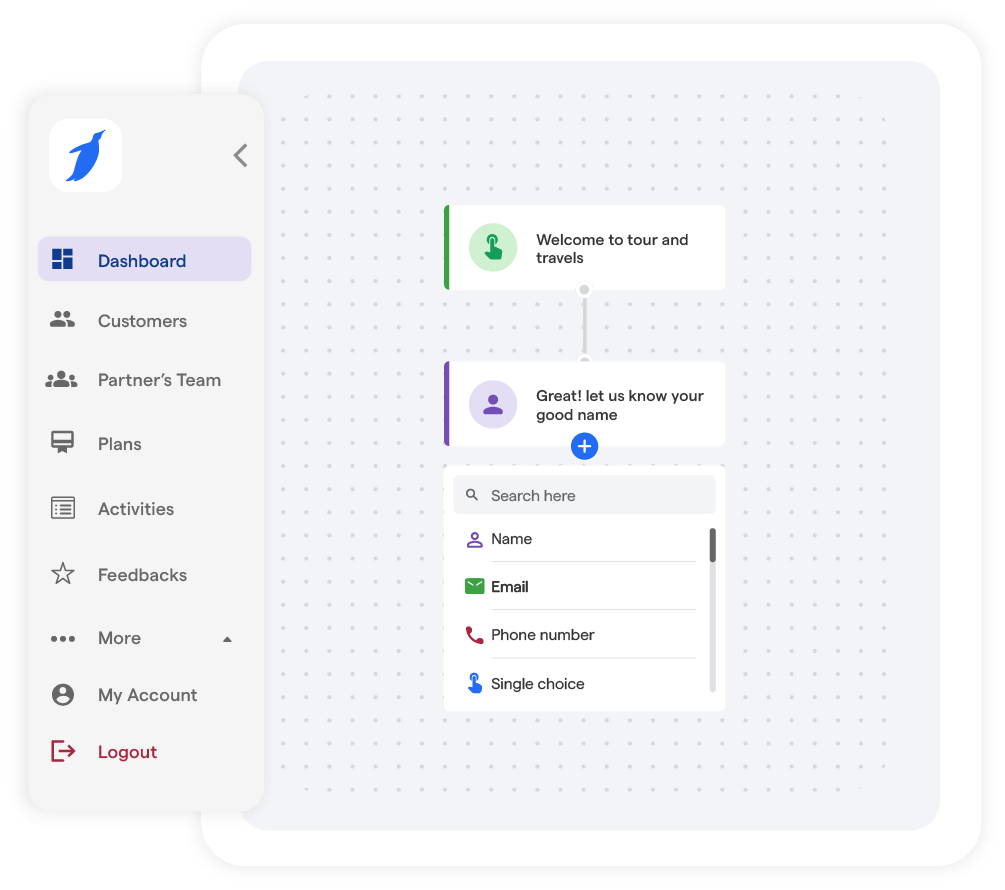
Chatbots are revolutionizing how businesses interact with their customers, providing seamless communication and automation capabilities.
As white label solutions, they enable resellers to deliver powerful AI-driven conversational tools under their own brand.
One standout option in this space is BotPenguin, a leading white label chatbot platform. BotPenguin is a top white label chatbot platform that lets you launch a fully branded chatbot solution within 12 hours.
With customizable features like flexible subscription plans, free trials, and seamless integrations with platforms like Zoho and ChatGPT, it offers resellers a unique opportunity to provide 24/7 customer support, lead generation, and marketing automation tools.
Whether you're a freelancer, agency, or SaaS business, BotPenguin provides all the tools needed to succeed in the rapidly growing chatbot market.
CRM Software
Customer Relationship Management (CRM) platforms are a staple in the white label reselling industry, widely used by businesses across sectors.
For example, Zoho CRM offers a white label version allowing resellers to rebrand the tool and provide it as their own.
A digital marketing agency might leverage a white-labeled Zoho CRM to help clients manage customer data, track sales, and improve customer relationships, all while boosting their own brand credibility.
This allows smaller companies to position themselves as a comprehensive service provider without building a CRM system from scratch.
Marketing Automation Tools

Marketing automation tools, such as white-labeled versions of ActiveCampaign or HubSpot, are popular in the white label market.
For instance, a social media consulting firm could offer a rebranded marketing automation platform that handles email campaigns, lead nurturing, and analytics.
By providing a white-labeled solution, the consulting firm helps clients automate and scale their marketing efforts.
Botpenguin is a leading marketing automation tool, with over 80+ rich integrations which can streamline your marketing automation process with ease.
This allows businesses to focus on strategizing and growing their client base, rather than spending time developing software capabilities.
Project Management Software
Project management software, such as Trello or Asana, often offers white label versions tailored for reselling.
Consider an IT consultancy that provides a white-labeled project management tool to its clients in the construction industry.
Clients can track tasks, assign roles, and visualize project timelines with software branded under the consultancy’s name. This boosts the consultancy’s perceived expertise and provides an additional revenue stream while meeting client needs for productivity tools.
E-commerce Platforms
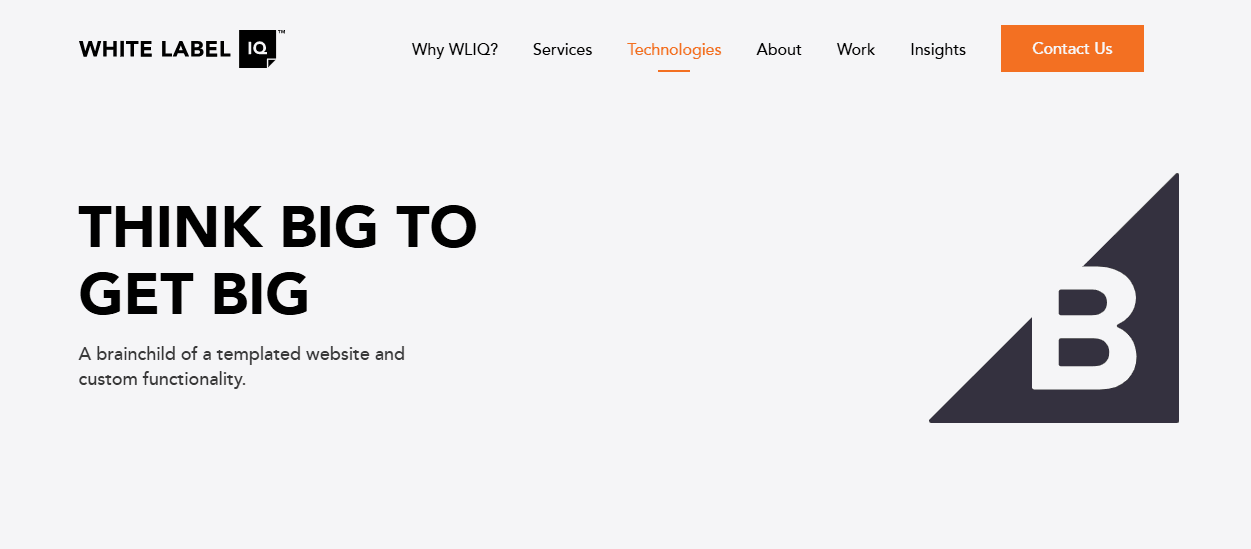
White label e-commerce platforms, such as BigCommerce’s white label program, enable resellers to offer branded online shopping solutions.
A web development company, for instance, could offer a branded version of BigCommerce to small retail clients who want an online store without the high cost of custom development.
This solution provides clients with customizable storefronts, payment gateways, and inventory management while allowing the development company to expand its services and reach a larger audience.
HR Management Systems
HR management systems, like BotPenguin’s white label program, are also popular for reselling.
For example, an HR consulting firm might resell a white-labeled HR platform that assists small businesses with payroll, employee management, and compliance.
They might also benefit from streamlining their HR tasks with he assistance of a leading AI chatbot function of BotPenguin, having the capabilities to complement in tasks such as onboarding, routine scheduling or reminders.
This tool allows the consulting firm’s clients to streamline HR processes, while the consulting firm benefits from providing a branded, high-demand solution.
This is especially valuable for companies looking to enhance HR efficiency without investing in a complex, custom-built platform.
Tips for Successful White Label Software Reselling
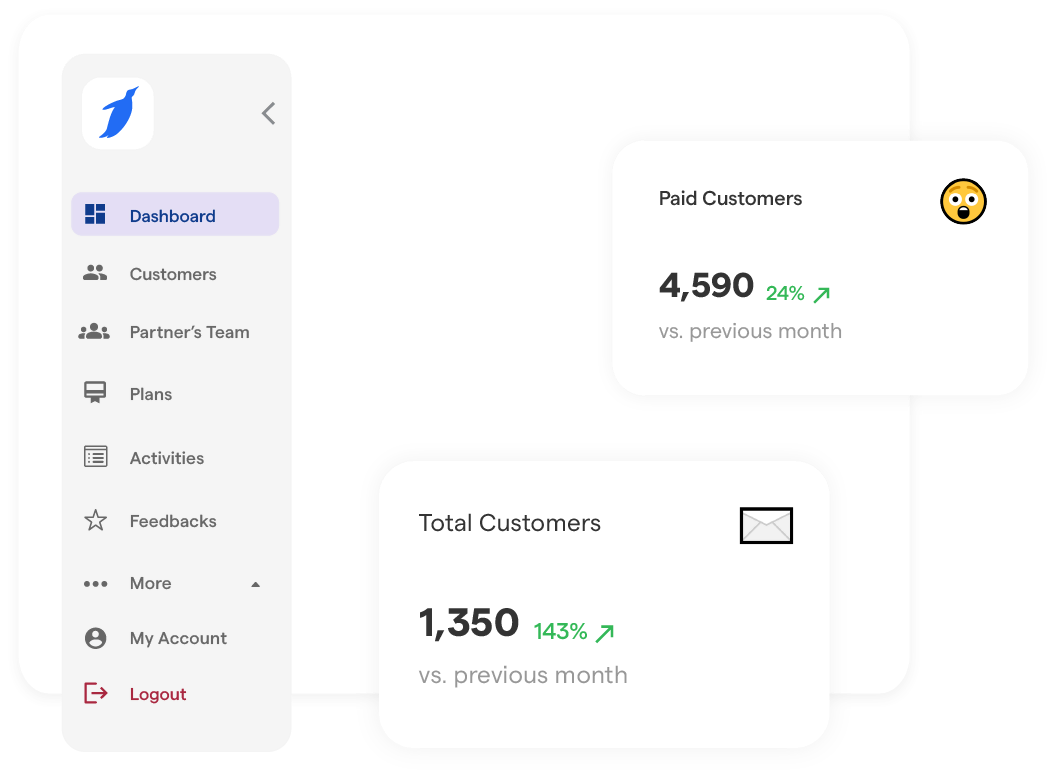
Reselling white label software can be profitable when approached strategically.
Success requires more than just offering a quality product; you need to implement approaches that differentiate your services and build a loyal client base.
Here are some essential tips to ensure your white label reselling business thrives.
Build a Strong Online Presence
A strong online presence is critical to attracting customers. For instance, a company offering white-labeled project management software could develop a blog focused on project management best practices.
This helps attract potential clients searching for solutions and reinforces the company’s expertise. Consider offering online demos or a free trial period to give prospective clients hands-on experience with the software.
Provide Excellent Customer Support

Exceptional customer service builds trust and long-term customer relationships. Take inspiration from companies like Freshdesk, known for its comprehensive support.
If you’re reselling CRM software, for instance, establish customer support channels (e.g., live chat, phone support) to address user concerns quickly.
Reliable support helps retain customers and differentiates you in the competitive white label market.
Offer Additional Value-Added Services
Adding extra services, such as customized onboarding and training, can significantly enhance your offering.
A digital agency reselling a white-labeled marketing platform might provide campaign strategy sessions or personalized onboarding to help clients make the most of the software.
These added services create a more personalized experience, encouraging customers to stick with your product over competitors.
Suggested Reading:
Understanding the Revenue Model of Chatbot Reselling Partnership
Continuously Update and Improve Your Offerings
Technology is constantly evolving, so keep your offerings current. Work with vendors like Zoho or HubSpot, known for regular updates, and communicate these changes to clients.
For instance, if reselling HR software, check with the vendor about updates in payroll compliance or employee engagement tools to ensure clients always have access to the latest features.
Leverage Social Media and Content Marketing
Social media and content marketing can drive customer acquisition. A company reselling white-labeled e-commerce software might publish blog posts or video tutorials on how to maximize online store sales.
Engaging content not only boosts visibility but also educates potential customers on the value of your product.
Platforms like LinkedIn, Facebook, and Instagram are ideal for showcasing success stories, and attracting customers who may not yet understand the benefits of white label solutions.
Conclusion
In conclusion, White label software reselling offers an exciting opportunity for businesses to expand their service offerings, increase brand value, and generate additional revenue without the burden of software development.
By choosing solutions like CRM systems, marketing automation tools, e-commerce platforms, and HR management systems, resellers can meet the varied needs of clients across industries.
With a strong online presence, exceptional customer support, and added-value services, resellers can build long-lasting relationships and gain a competitive edge.
Staying adaptable and up-to-date with the latest technology trends will ensure your offerings stay relevant and valuable. Whether you're a small business looking to boost your portfolio or an established company aiming to scale, white label software reselling opens up limitless possibilities.
So, at last dive into the world of white label reselling, and empower your brand with innovative, high-demand solutions that drive success for you and your clients alike.
Frequently Asked Questions (FAQs)
What is White Label Software?
White label software is pre-developed software that businesses can rebrand and resell as their own.
This solution lets companies provide software products to clients without the need for costly development or ongoing maintenance, making it ideal for those looking to expand their offerings.
How Does White Label Software Reselling Work?
In white label software reselling, companies purchase a ready-made product from a provider, rebrand it with their own logo and identity, and then sell it under their name.
The software provider manages updates and support, while the reseller focuses on marketing, customer service, and client acquisition.
What Are the Benefits of Reselling White Label Software?
Reselling white label software offers increased revenue, minimal development expenses, fast market entry, and scalable solutions.
It allows resellers to grow their business by focusing on sales and support rather than the complexities of software creation.
What Types of Businesses Use White Label Software?
Businesses from many sectors, including SaaS providers, e-commerce platforms, marketing agencies, and HR services, leverage white label software.
It’s a popular choice for companies aiming to expand their product line without the high costs associated with development.
How Do I Choose the Right White Label Software to Resell?
To select the best white label software, consider your target audience, business objectives, and essential features.
Look at factors like pricing, vendor reputation, and support to ensure the software aligns with your needs and offers lasting value.
Can White Label Software Be Customized?
Yes, white label software is designed for customization. Resellers can typically adjust branding elements such as logos, colour schemes, and interface design to reflect their own identity, allowing them to market it as a unique offering under their brand.



